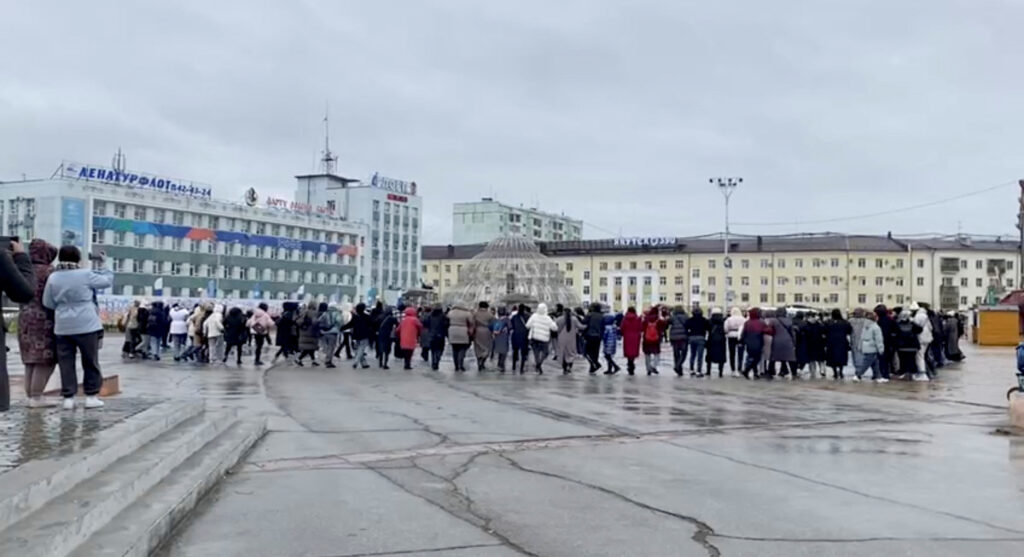Ukrainian and Russian forces were locked in heavy fighting in different parts of Ukraine on Tuesday as Russian-organised referendums in four regions Moscow hopes to annex drew to a close.
Ukrainian President Volodymyr Zelenskiy said the Donetsk region in the east remained his country’s — and Russia’s — top strategic priority, with fighting engulfing several towns as Russian troops try to advance to the south and west.
There were also clashes in Kharkiv region in the northeast — focus of a Ukrainian counter-offensive this month. And Ukrainian forces pressed on with a campaign to put out of action four bridges and other river crossings to disrupt supply lines to Russian forces in the south.
The Ukrainian Armed Forces southern command said on Tuesday that its counter-offensive in Kherson had resulted in enemy losses of 77 servicemen, six tanks, five howitzers, three anti-aircraft installations and 14 armoured vehicles.
Reuters could not immediately verify battlefield reports.
Moscow hopes to annex the provinces of Kherson, Luhansk, Donetsk and Zaporizhzhia, in the east and south, which make up about 15 percent of Ukraine.
None of the provinces are fully under Moscow’s control and fighting has been underway along the entire front line, with Ukrainian forces reporting more advances since they routed Russian troops in a fifth province, Kharkiv, earlier this month.
Russian President Vladimir Putin has issued a veiled threat to use nuclear weapons to protect Russian soil, which would include the four provinces if annexed.
Voting on whether to join Russia began on Friday in the regions and is due to end on Tuesday, with the Russian parliament possibly approving the annexation within days.
Kyiv and the West have dismissed the referendums as a sham and pledged not to recognise the results.
CONSCRIPTION
In Russia, the call-up of some 300,000 reservists has led to the first sustained protests since the invasion began, with one monitoring group estimating at least 2,000 people have been arrested so far. All public criticism of Russia’s “special military operation” is banned.
Flights out of Russia have sold out and cars have clogged border checkpoints, with reports of a 48-hour queue at the sole road border to Georgia, the rare pro-Western neighbour that allows Russian citizens to enter without a visa.
Asked about the prospect of the border being shut, Kremlin spokesman Dmitry Peskov told reporters on Monday: “I don’t know anything about this. At the moment, no decisions have been taken on this.”
Russia counts millions of former conscripts as official reservists. The authorities have not spelled out precisely who is due to be called up, as that part of Putin’s order is classified.
The mobilisation has also seen the first sustained criticism of the authorities within state-controlled media since the war began.
But Sergei Tsekov, a senior lawmaker who represents Russian-annexed Crimea in Russia’s upper house of parliament, told RIA news agency: “Everyone who is of conscription age should be banned from travelling abroad in the current situation.”
Two exiled news sites – Meduza and Novaya Gazeta Europe – both reported that the authorities were planning to ban men from leaving, citing unidentified officials.
Moscow says it wants to rid Ukraine of nationalists and protect Russian-speaking communities. Kyiv and the West describe Russia’s actions as an unprovoked war of aggression.
Late on Monday, Zelenskiy described the military situation in Donetsk as “particularly severe.”
“We are doing everything to contain enemy activity. This is our No. 1 goal right now because Donbas is still the No. 1 goal for the occupiers,” he said, referring to the wider region that encompasses Donetsk and Luhansk.
Russia carried out at least five attacks on targets in the Odesa region using Iranian drones in the last few days, according to the regional administration.
Russian missiles hit the airport in Kriviy Rih, Zelenskiy’s home town in central Ukraine, destroying infrastructure and making the airport unusable, Valentyn Reznichenko, governor of Dnipropetrovsk region, said on Telegram.
More U.S. funding looks to be on the way as negotiators of a stop-gap spending bill in Congress have agreed to include nearly $12 billion in new military and economic aid to Ukraine, according to sources.

